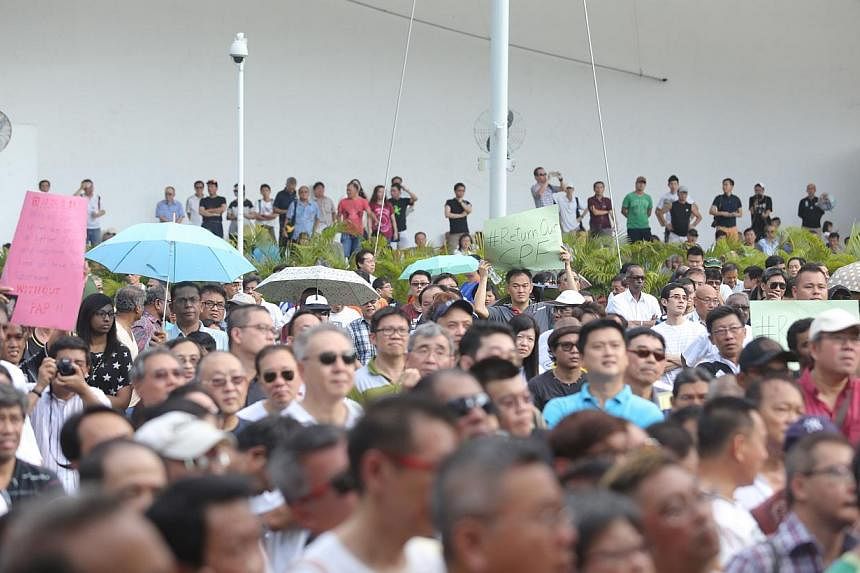Singapore is confronting the perils of please-all economics. Ageing citizens are pushing the Government for bigger nest eggs and more subsidised health care and housing. There is also popular resentment against letting more foreigners in, and not much appetite for increasing the 7 per cent consumption tax. Squaring this fiscal circle will be a long-term challenge.
Already, there's simmering anger in the city-state about overcrowded trains and costly public housing. About 2,000 people gathered recently to demand that the state-run retirement plan raise its 4 per cent annual interest rate.
People protested last year, too, when the Government unveiled a plan to boost the resident population by 30 per cent to 6.9 million by 2030, with immigration compensating for a drooping birth rate.
The multifaceted discontent puts Singapore's fiscally conservative Government in a quandary.
Expanding the economy - and the tax base - with less foreign labour will mean improving the productivity of the local workforce. That's a long shot.
Another way to pay for everything people want is to tax companies more heavily. But Singapore's business costs are already quite high. A third strategy could be for the city-state to try to earn more on its substantial sovereign wealth by buying riskier assets. That could backfire, leaving less money for welfare.
Alternatively, the Government could skimp on investing. The outlay on the city's development budget in the most recent five- year period has jumped by a third.
Slowing the pace might be a mistake, however. Pricey real estate would swoon if Singapore loses its urban buzz and stops attracting investors and tourists. That will make Singapore's property- loving citizens less wealthy and more miserable. The trade-offs are difficult. But Singapore has some advantages.
Rival Hong Kong is facing an existential threat as China tightens its grip on the former British colony and boosts alternatives like Shanghai. By contrast, Singapore offers investors proximity to India and Indonesia, neither of which will boast a global city soon.
For all the grumbling, the majority of Singaporeans are too pragmatic to opt for unbridled welfarism at the next elections, which will take place by 2016.
Still, please-all economics is scratching at the door. If it finds a way in, prosperity could be in jeopardy.
Andy Mukherjee is a columnist with Reuters BreakingViews.
For more commentaries, please visit The Straits Times Opinion site.

